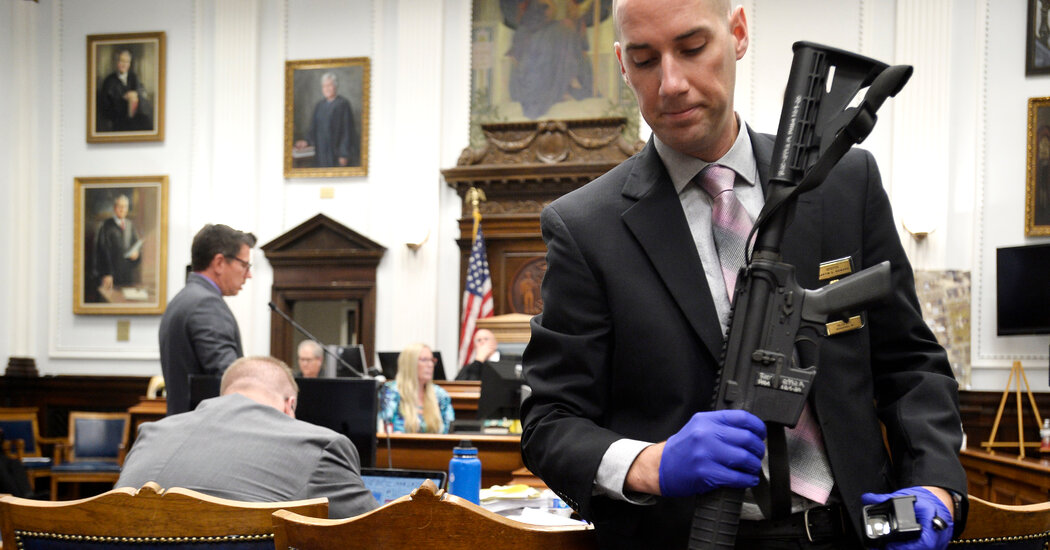KENOSHA, Wis. — The judge in Kyle Rittenhouse’s homicide trial on Monday dismissed the misdemeanor gun possession charge the teenager faced after defense lawyers argued that he did not violate the state statute in question because of his age and the length of the barrel of his semiautomatic rifle.
Judge Bruce Schroeder’s ruling, delivered shortly before closing statements, resolved a byzantine legal debate over a Wisconsin statute that began after Mr. Rittenhouse was charged last year with fatally shooting two men and wounding a third during chaotic demonstrations in Kenosha.
Mr. Rittenhouse still faces five felony charges, including first-degree intentional homicide, which carries a potential life sentence. The jury will begin deliberating on Tuesday morning.
The defense had long argued that the gun possession charge was invalid, saying that Wisconsin law did not bar Mr. Rittenhouse from carrying the military-style semiautomatic rifle on Aug. 25, 2020. Its successful argument hinged in part on the fact that the Smith & Wesson M&P 15 he had strapped around his shoulder has a 16-inch-long barrel.
The misdemeanor charge of illegally possessing a dangerous weapon as a minor was the least serious one Mr. Rittenhouse faced and carried a relatively short sentence. But jurors might have settled on the charge, said Steven Wright, a law professor at the University of Wisconsin-Madison, if they balked at the more serious counts but wanted to convict Mr. Rittenhouse of something.
“A jury, perhaps inclined toward compromise, won’t have the gun charge as an option,” Mr. Wright wrote in an email.
Michael O’Hear, a law professor at Marquette University Law School, wrote in an email that the dismissal of the gun possession charge could make the jury perceive that the prosecution had generally overreached with its charges.
Judge Schroeder told jurors on Monday that they could consider some less serious charges than the ones Mr. Rittenhouse has faced all along. For instance, jurors could opt to convict him of second-degree intentional homicide instead of the higher charge of first-degree intentional homicide.
It is legal for adults to openly carry firearms in Wisconsin, but state law prohibits minors from possessing firearms except in limited circumstances.
Prosecutors argued it was clear that Mr. Rittenhouse’s possession of the gun was illegal and that the jury should be asked to decide on the charge. The defense lawyers argued that the statute barring “possession of a dangerous weapon by a person under 18” did not apply in this case.
The statute says it applies to minors carrying a rifle or shotgun only if they are not in compliance with at least one additional statute. Those include the regulation of “hunting and use of firearms by persons under 16 years of age,” and the prohibition of rifles with barrels less than 16 inches long.
Mr. Rittenhouse was 17 at the time of the shootings. The judge threw out the charge after nobody in court disputed the length of the gun’s barrel.





